David Cameron claims that his government has created 1,000 jobs a day since the coalition came to power in 2010. He also claims that a Conservative government would continue to create jobs at the same rate if elected in May.
The prime minister told BBC Breakfast:
Over the last five years we’ve created a thousand jobs a day, and we commit to continuing that record because we’re going to continue supporting business and industry, continuing to make our country an attractive one to invest in and so we believe we can create those thousand jobs.
Is this true?
It is true that employment rose by 1.8 million between May 2010, when the current government came to power, and the end of January 2015 (the latest data available from the Office for National Statistics). It roughly works out, therefore, that the number of people employed increased by 1,000 a day over the period.
UK unemployment never rose to the levels feared at the outset of the financial crisis and it fell much faster than expected during 2013. As the graphic below shows, the jobless rate now stands at 5.7% – the lowest since the summer of 2008 before the full force of the financial crisis reached the global economy.
By comparison, the UK unemployment rate is lower than the eurozone’s – which is 11.3% – the same as the US’s and higher than Germany’s 4.8%.
But the numbers mask less positive trends...
The headline numbers of rising employment and falling unemployment over the last five years do not tell the whole story.
The rise in jobs has not been accompanied by a meaningful rise in real pay, which fell for six years between 2008 and 2014 as inflation consistently outpaced wage rises. The trend finally appears to be reversing, but that can be explained more by record low inflation – currently at zero – as a result of lower global oil prices, than a strong pick-up in wage growth.
According to the Trussel Trust, the number of people using UK food banks almost tripled in 2013-14 to about 1 million people. That suggests that many people are not feeling the benefit of the rise in employment.
The headline numbers also mask the big jump in self-employment and the rise of zero-hours contracts, a major driver of the increase in employment over the past five years.
As the chart above shows, analysis by the ONS has demonstrated that self-employment in the UK was higher in 2014 than at any point over the past 40 years, at 4.6 million or 15% of the workforce. Of the 1.1 million rise in the number of people employed between the first quarter of 2008 and the second quarter of 2014, 732,000 were self-employed.
The increase can partly be explained by people choosing to work for longer in self-employed roles, but also by an inability of some self-employed workers to find work as an employee.
So will jobs be created at the same rate?
The second part of Cameron’s claim is that a Conservative government would continue to create 1,000 jobs a day if elected in May.
They’re going to come from successful British businesses, large and small, that are expanding because we’ve got a long-term economic plan that’s working.
This, of course, is nothing more than a claim. Employment is forecast to rise in the UK, but it is impossible to know by how much, partly because it will be up to businesses whether or not they create jobs.
One thing that is worth pointing out here though is that business investment has bitterly disappointed over the past five years.
The Office for Budget Responsibility (OBR) – the government’s independent forecaster – has consistently overestimated business investment. In June 2010, a month after the coalition came to power, the OBR predicted business investment would increase by 10.9% and 9.5% in 2013 and 2014 respectively. It rose by 5.3% in 2013 and 6.8% in 2014.
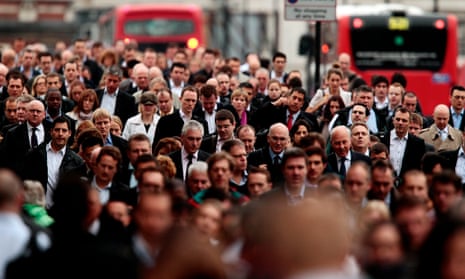
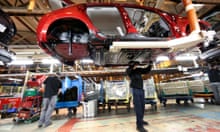



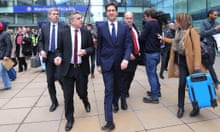
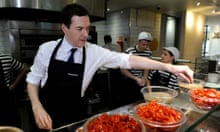
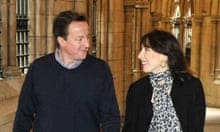


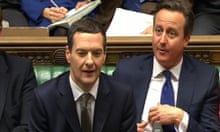
Comments (…)
Sign in or create your Guardian account to join the discussion